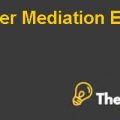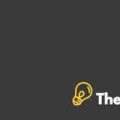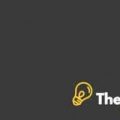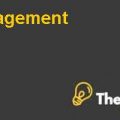
JOHANNES VAN DEN BOSCH SENDS AN E-MAIL
Summary
By reading the case study, ‘Johannes Van Den Bosch Sends an e-mail’, it can be said that it actually develops the understanding regarding the significance of cross cultural communication, relationships , perceptions, attributes and challenges, which are directly and indirectly involved while working in a global environment. Johannes Van Den Bosch, who was a pure Dutchman working for the Big Four Company. When he faced the complexity of encountering a disappointed customer as he was not able to meet the desired time limit of approved deliverables; at that moment he decided to write down an e-mail to his Mexican counterpart, Mr. Menendez. While at first, he actually dumped all of his disappointments and indignations in his draft mail, he decided to take a ‘calm down’ recess in order to reclaim neutrality in his mood. After a short break, he wrote his e-mail once again by sticking to the concerned facts. In his mail, he undoubtedly stated his position and commands in a very direct but non abusive tone. His actual purpose for sending the e-mail was to strictly get down to business related tasks. There was a very official intonation all the way through the e-mail.
His idea in scripting down the e-mail was to put emphasis on how important the task at stake was, and also how immediately it needed to be done. He wanted to know actually what had originated the lack of interest of the concerned authority in updating the status of the job regarding deliverables. Towards the end of the email, he also mentioned that he wanted his counterpart to present him a weekly status and also tell him straight away upon facing related problems. Johannes stuck on the genuine facts due to various factors like for example Johannes and Pablo came from dissimilar cultural backgrounds even though they worked for the similar company. In Johannes’ country, which is Holland, it is completely normal to follow ‘to the point’ approach. Hofstede’s experiment and theory can play massive role in measuring factors that were related to these differences.
Hofstede's cultural dimensions theory is a structural framework for the cross cultural communication, which was developed by Mr. Geert Hofstede. It illustrates the effects of a society's collaborative culture on the ideal values of its members, and how these values actually relate to actions, using a structure derived from factor analysis. The theory has been broadly used in many fields as a prototype for research, particularly in cross-cultural dimension or from its psychological perspective, cross cultural communication and international management (Fischer, 2009).
Question 1: From Van den Bosch point of view, what was his intention in sending the email?
Johannes Van den Bosch was working as the leading audit and accounting partner, who busy in facilitating a British multinational client. The required reports regarding financial issues are the main determinants in any project development and have to be handled maximum care so that the necessary information can be attained (Ting-Toomey, 1993)
Mr. Smythe-Jones was working as the CFO of that British multinational client. Johannes Van den Bosch is based in Holland and has just came across as a rigorous and strict rebuke from Mr. Smythe-Jones and the controller of that British multinational, Mr. Parker, for the enormous delay in providing the financial figures or statements of their Mexican subsidiary. These strict words from Mr. Smythe-Jones actually resulted in increasing frustration of Mr. Johannes van den Bosch and now he was in serious trouble.
Despite of the fact that Van den Bosch had made several requests to Mr. Pablo Menendez, his counterpart in Mexico for the required financial statements but the outcome and status of the demand was absolutely zero. Last week Smythe- Jones had been found quiet upset and didn’t bother to come to Van den Bosch’s workplace. That morning he had simply called him with escalating anger and had been quiet abusive to Mr. Van. Mr. Van den Bosch, who was worried and frustrated and followed up the telephone call, started writing an email to his Mexican partner with an emotional intensity so as to address the issue raised by the client. But later on he felt that it would be really inappropriate to send it in such a way; therefore, he decided to take his time and relaxed for half an hour. Then he went back to his personal computer and edited out the inappropriate material and restricted the email to limited facts and figures. The reason of asking the questions in bullet forms was the phone call that made Van den Bosh quiet upset from the lazy progress by his Mexican Colleague regarding the submission of financial statements of an important British client.
The principle idea behind sending this email was to get prompt, authentic and tangible facts about the overall progress on the desired ...............
This is just a sample partial case solution. Please place the order on the website to order your own originally done case solution.
Dutch partner in the Big 5 professional services have difficulty in obtaining the cooperation of its Mexican partner in servicing the British multinational clients. Because part of the competitive positioning of the company is a seamless global service, the customer has become more and more angry. After a particularly hostile exchange with customers, Johannes van den Bosch wrote a very angry e-mail to their Mexican partner, cooled for an hour, and then changing the original e-mail to stick to the facts and figures. He sends him off waiting for the necessary information and future cooperation in the near future. There are medium and messages to the circumstances? "Hide
by Joe Distefano Source: IMD 2 pages. Publication Date: January 1, 2000. Prod. #: IMD091-PDF-ENG










